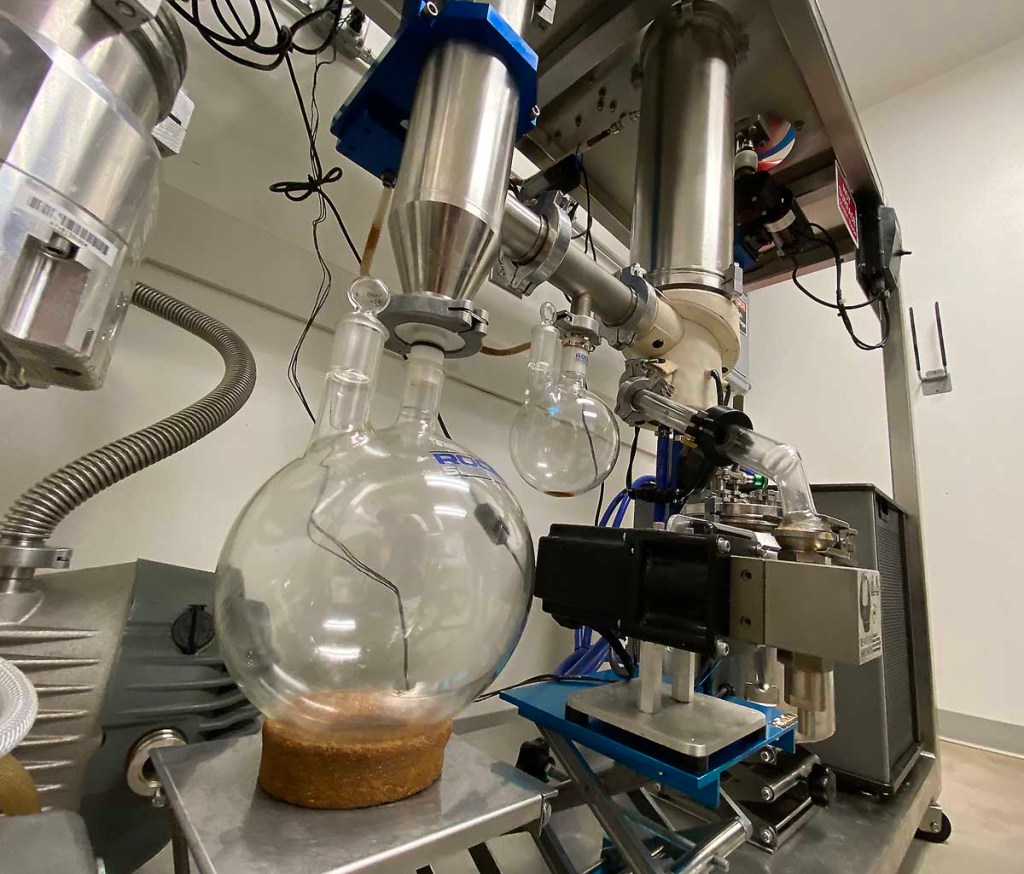Cannabis commission awards Dodge City business integrated facility license
Published 2:34 pm Wednesday, December 13, 2023

- Distillation equipment used to refine product is seen in July 2022 at Wagon Trail Hemp Farms in Dodge City. The business has operated a hemp processing facility — minus the production of medicinal cannabis — since 2019.
After a six-month delay to more closely scrutinize the statewide approval process, Cullman County will officially be home to one of Alabama’s five top-to-bottom medical cannabis facilities under a new state law that allows for legal cultivation, manufacturing and sales.
On Tuesday, the Alabama Medical Cannabis Commission awarded Wagon Trail Hemp Farms of Dodge City a license to operate an integrated facility, which allows a single business operator to operate across all phases of the medical cannabis production and sales process. The award comes in the wake of the commission’s retooled effort to reexamine its initial licensing method, after its announcement in June of an original group of licensees drew criticism from unsuccessful applicants for appearing to favor south Alabama businesses.
Wagon Trail Hemp Farms — appearing on the state’s licensing list as Wagon Trail Med-Serv, LLC — received an integrated license this week alongside four other integrated operators. Wagon Trail managing partner Joey Robertson noted Wednesday that the Cullman County-based business earned the second-highest score among all the integrated applicants in the commission’s reworked licensing process; a process that for the first time included a face-to-face interview with commission members.
“They had interviews with integrated license applicants over four days last week, and then this week they voted and placed us at number two,” he said.
“We actually had a unanimous vote from all the commissioners who were present, and I believe we were the only applicants who received that. That validation means a lot to me. I knew the years of work that we put in as a team, and I knew how advanced we were in comparison even to some other very qualified applicants. It was a tremendous moment for us, and we are grateful for everything the commission has done in listening to everyone and examining their original licensing process more closely.”
Licenses were awarded to all successful applicants this week, but they won’t officially take effect until Jan. 9. Robertson said that Wagon Trail will move swiftly to build out the portion of its medical cannabis operation that the new license covers, and that his company’s products should be available for purchase locally sometime next year.
“We won’t officially have that license in hand until January 9, but at that point we will go hard and heavy into additional construction, building, hiring and all the phases of operation that it makes sense to commence once that license is in hand,” he said. “An aggressive timeline would be as early as next spring [to have product ready for sale]. “But we certainly plan to have cultivation commence 45 days after the Jan. 9 receipt of our license.”
For Robertson and other statewide operators who felt the commission’s initial round of licenses didn’t acknowledge their years of planning, preparation and expense, Tuesday’s news came as a welcome change.
“We are unbelievably appreciative to this commission for taking the time and effort to actually interview these applicants,” he said. “It allowed us to actually jump off a piece of paper and show them who we really are and whom we’ve already helped over the years. I’m genuinely satisfied with what the licensing process has evolved into. The additional six months of waiting and spending and planning wasn’t part of our initial plan. But knowing this is the most thorough the entire process has been bodes well for the future of medical cannabis in Alabama.”
Robertson also noted Wagon Trail Hemp Farms already had been welcomed as a productive local hemp business before the commission granted it an integrated facility license, adding that community leaders had remained supportive throughout its efforts to become one of the state’s first medicinal cannabis adopters.
“We have received so much local support from local government and from the people who live around Cullman County, and we are beyond grateful for every bit of local support that we’ve received,” he said. “We started locally and then made its way all the way to Montgomery — and with that support, we were successful in kind of being the ‘little guy’ who prevailed.”





